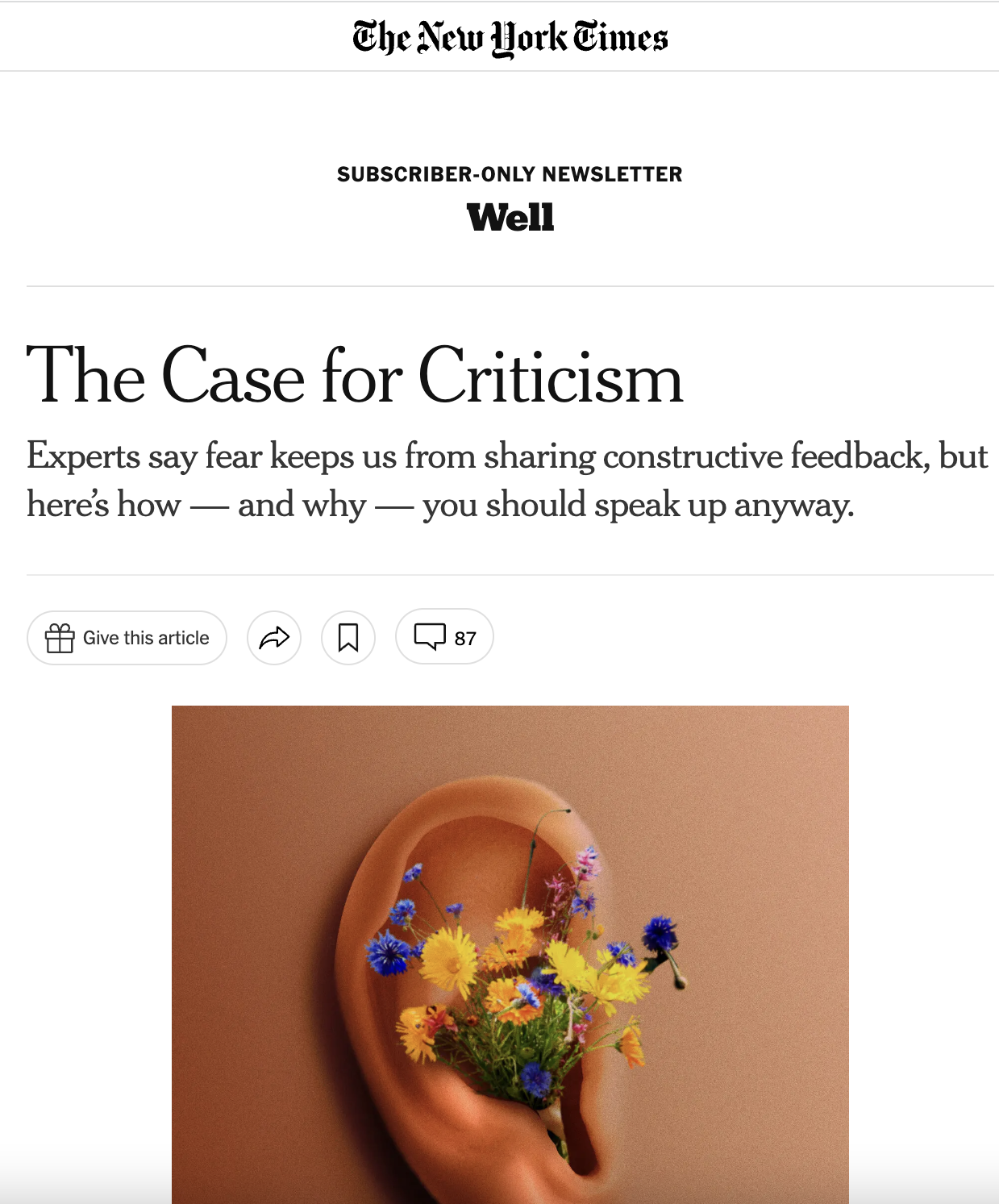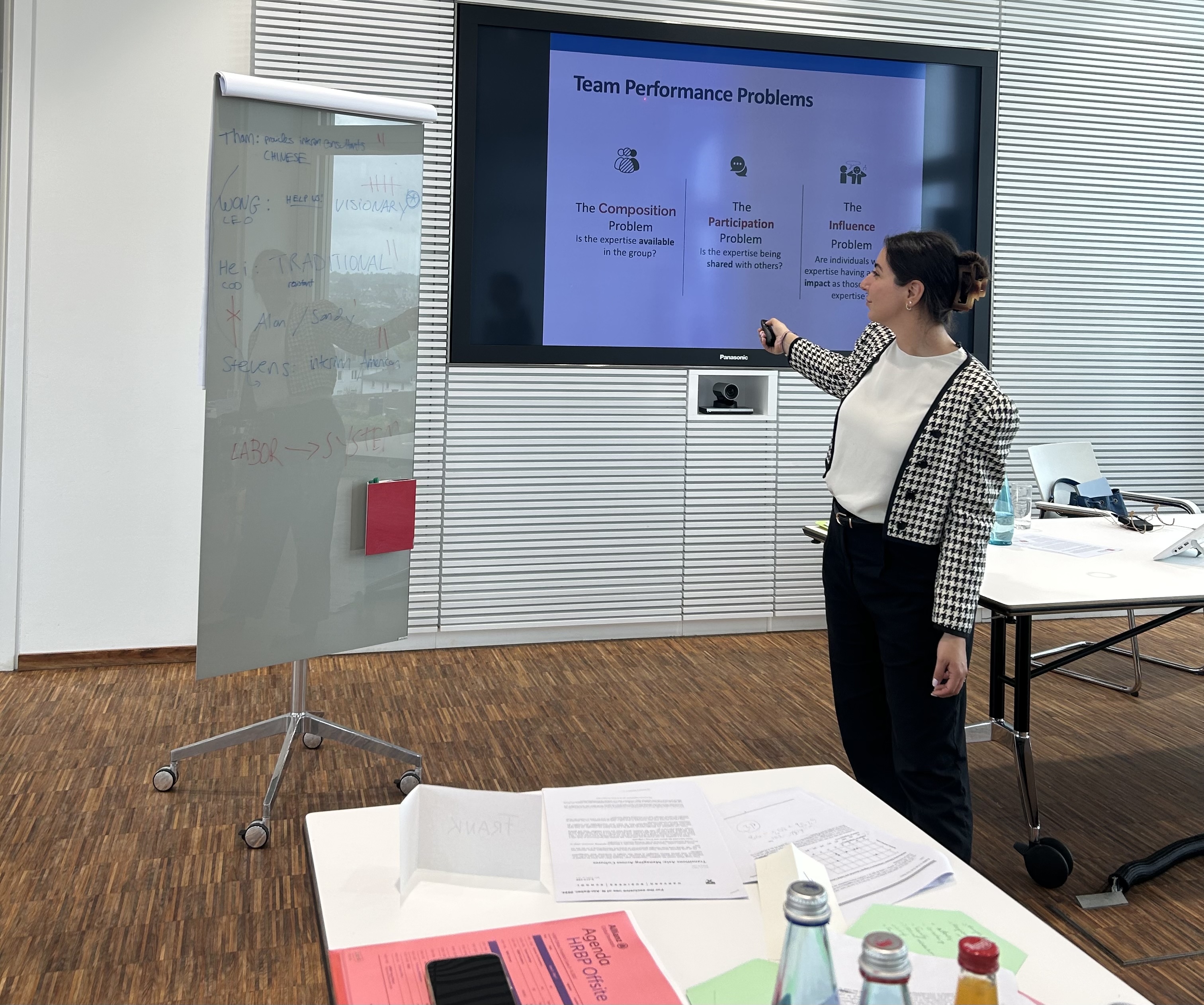Nicole Abi-Esber, PhD
Dr. Nicole Abi-Esber has a doctoral degree in Organizational Behavior from the Harvard Business School, and is an Assistant Professor of Organisational Behaviour in the Management Department at the London School of Economics.
Her research examines how leaders can empower employees to feel psychologically safe and speak up at work. She uses experiments and computational social science methods, including natural language processing.
Nicole previously worked as a product manager for mobile products in tech startups in emerging markets.
Her CV can be viewed here.

My CV can be viewed here.
Publications
Abi-Esber, N.*, Greer, L. *, De Hoogh A. Team Hierarchical Adaptability: Benefits for Team Coordination and Performance. The Academy of Management Journal.
*Authors contributed equally.
Yeomans, M., Collins, H., Abi-Esber, N., Boland, K., Brooks, A.W. (2023). A User’s Guide to Conversation Research. Advances in Methods and Practices in Psychological Science. [pdf] [no data/ no osf]
Abel, J., Vani, P., Abi-Esber, N., Blunden, H., Schroeder, J. (2022). Kindness in Short Supply: Evidence for Inadequate Prosocial Input. Current Opinion in Psychology. [pdf] [no data/ no osf]
Abi-Esber, N., Abel, J., Schroeder, J., Gino, F. (2022). “Just wanted to let you know…” Underestimating others’ desire for constructive feedback. Journal of Personality and Social Psychology. [pdf] [osf]
Abi-Esber*, N., Cooney*, G., Mastroianni*, A., & Brooks, A.W. (2020). The many minds problem: Disclosure in dyadic vs. group conversation. Current Opinion in Psychology, 31, 22-27. *Authors contributed equally. [pdf][no data/ no osf]
Brooks, A.W., Huang, K., Abi-Esber, N., Hall, B., Buell, R., & Huang, L. (2019). Mitigating envy: Why successful individuals should reveal their failures. Journal of Experimental Psychology: General. [pdf] [osf]
Publications
Abi-Esber, N.*, Greer, L. *, De Hoogh A. Team Hierarchical Adaptability: Benefits for Team Coordination and Performance. The Academy of Management Journal.
*Authors contributed equally.
Yeomans, M., Collins, H., Abi-Esber, N., Boland, K., Brooks, A.W. (2023). A User’s Guide to Conversation Research. Advances in Methods and Practices in Psychological Science. [pdf] [no data/ no osf]
Abel, J., Vani, P., Abi-Esber, N., Blunden, H., Schroeder, J. (2022). Kindness in Short Supply: Evidence for Inadequate Prosocial Input. Current Opinion in Psychology. [pdf] [no data/ no osf]
Abi-Esber, N., Abel, J., Schroeder, J., Gino, F. (2022). “Just wanted to let you know…” Underestimating others’ desire for constructive feedback. Journal of Personality and Social Psychology. [pdf] [osf]
Abi-Esber*, N., Cooney*, G., Mastroianni*, A., & Brooks, A.W. (2020). The many minds problem: Disclosure in dyadic vs. group conversation. Current Opinion in Psychology, 31, 22-27. *Authors contributed equally. [pdf][no data/ no osf]
Brooks, A.W., Huang, K., Abi-Esber, N., Hall, B., Buell, R., & Huang, L. (2019). Mitigating envy: Why successful individuals should reveal their failures. Journal of Experimental Psychology: General. [pdf] [osf]
```

Spring 2020
Harvard Extension School, Boston, MA
Co-instructor for Organizational and Consumer BehaviorCreated, designed, and taught semester-long practitioner-oriented course on Organizational and Consumer Behavior for 36 students (course taught with 1 other instructor)
Perfect individual teaching evaluation rating (5.0/5.0)
Fall 2021
Harvard Extension School, Boston, MA
Co-instructor for Organizational and Consumer Behavior
Created, designed, and taught semester-long practitioner-oriented course on Organizational and Consumer Behavior for 15 students (course taught with 2 other instructors)
Perfect individual teaching evaluation rating (5.0/5.0)
Course Evaluation Comments
As comments from my course evaluations demonstrate, I put my research into action by creating a psychologically safe classroom environment and encouraging voice in the classroom.
Harvard Extension School, Boston, MA
Co-instructor for Organizational and Consumer BehaviorCreated, designed, and taught semester-long practitioner-oriented course on Organizational and Consumer Behavior for 36 students (course taught with 1 other instructor)
Perfect individual teaching evaluation rating (5.0/5.0)
Fall 2021
Harvard Extension School, Boston, MA
Co-instructor for Organizational and Consumer Behavior
Created, designed, and taught semester-long practitioner-oriented course on Organizational and Consumer Behavior for 15 students (course taught with 2 other instructors)
Perfect individual teaching evaluation rating (5.0/5.0)
Course Evaluation Comments
As comments from my course evaluations demonstrate, I put my research into action by creating a psychologically safe classroom environment and encouraging voice in the classroom.
-
Nicole was incredibly organized, thoughtful, and engaging. I looked forward to attending her lectures, and would take another class with her if she were teaching a next level of the course.
-
I think she was the best instructor [out of the 3 co-instructors] in moderating the classroom discussions and answering our questions.
- She created an open intellectual environment, where we all could debate and ask for more detail on concepts. Nicole was super responsive and really made you feel like your comments were being heard. She was always available to talk further and made this option feel very welcome.
-
Nicole
is a master communicator and explained topics in such a way that they were
easily comprehended. She fostered lively discussion during each class period
she led. Feedback on assignments was extremely fast and specific.
- She
really engages the students well, especially in an online format. To the point
about fairness, she was great at getting class participation and not allowing
the more outspoken members to “hog the mic.” I think this is especially
important because we want to hear what our peers think. Additionally, she brought
in some great use cases and interesting studies to lectures.
- Nicole has a great presentation pace that keeps you engaged in difficult topics and works well over zoom. She facilitated a comfortable environment that opened the floor for natural discussion and questions from my peers. I found her topics to be the most interesting.
Leader Emails Paradigm
An open-source simulated inbox tool to study how leader emails affects participant perceptions. You can customize the timing and frequency of emails, content of all emails (body, subject, sender, etc...), and the task that participants will work on.
To use:
Follow this link: https://getmasterpiece.com/test/backup/installer.php
Name your instance, and two links will be generated: an admin site and a website. A login and password for the admin site will also be generated—note these down. Use the admin site you can change anything about the backend (content, timing of the messages), and then use the URL of the website to test the changes (if changes are not immediately reflected, try “hard refreshing”). You can create different URLs of the inbox for different conditions, and share these URLs with online study partipants.
Eye Gaze Paradigm
An open-source tool to study the effects of receving more or less gaze in a simulated group conversation.
Customize the paradigm and generate a code for your participants (or try one of our pre-set versions):
http://gazeparadigm.com/Start.html
Start the paradigm: http://gazeparadigm.com/Streets3/index.html
R Package for Zoom transcripts
An R package to convert the output generated from Zoom conversations (VTT files) into .csv files. Provides columns for speaker name, timestamp, and content of the comment.
If you have recordings of group conversations on Zoom, and interested in analyzing the auto-generated transcripts, this package can help you get that data into shape for analysis.
To install and use the package visit: https://github.com/seankross/vtt/.
This package was developed with the help of my colleague, data scientist Sean Kross.
An open-source simulated inbox tool to study how leader emails affects participant perceptions. You can customize the timing and frequency of emails, content of all emails (body, subject, sender, etc...), and the task that participants will work on.
To use:
Follow this link: https://getmasterpiece.com/test/backup/installer.php
Name your instance, and two links will be generated: an admin site and a website. A login and password for the admin site will also be generated—note these down. Use the admin site you can change anything about the backend (content, timing of the messages), and then use the URL of the website to test the changes (if changes are not immediately reflected, try “hard refreshing”). You can create different URLs of the inbox for different conditions, and share these URLs with online study partipants.
Eye Gaze Paradigm
An open-source tool to study the effects of receving more or less gaze in a simulated group conversation.
Customize the paradigm and generate a code for your participants (or try one of our pre-set versions):
http://gazeparadigm.com/Start.html
Start the paradigm: http://gazeparadigm.com/Streets3/index.html
R Package for Zoom transcripts
An R package to convert the output generated from Zoom conversations (VTT files) into .csv files. Provides columns for speaker name, timestamp, and content of the comment.
If you have recordings of group conversations on Zoom, and interested in analyzing the auto-generated transcripts, this package can help you get that data into shape for analysis.
To install and use the package visit: https://github.com/seankross/vtt/.
This package was developed with the help of my colleague, data scientist Sean Kross.
Press (selection)
“The Case for Criticism.” The New York Times. (April 14, 2022)

“En Defensa de la Crítica.” The New York Times. (April 24, 2022)
“Constructive Criticism is Highly Sought, Rarely Given.” The Financial Post. (May 3, 2022)
“People Want Constructive Feedback—Here’s How To Give It Without Being Mean.” Well & Good. (April 21, 2022)
“People underestimate others' desire for constructive feedback.” Science Daily. (March 24, 2022)
“Study: Americans want the feedback they fear to give others.” The Washington Times. (March 24, 2022)
“Why Managers Should Reveal Their Failures.” Forbes. (December 11, 2018)
Trainings & Workshops
The research is clear: teams perform best when all members feel psychologically safe and participate fully. But in reality, who speaks in your meetings? Do you end up hearing from the same people, over and over? How about the others? This is what we call the “qualified quiet.” Your organization is very likely leaving good ideas from the “qualified quiet” on the table in almost every meeting.
I offer workshops and trainings, including full-day corporate offsites, on topics related to optimizing meetings, communicating with confidence, power and influence, persuasion, public speaking, leadership skills, psychological safety, and behavioral science.
Previous clients include Mastercard and Allianz Insurance (instructor rating of 9.4/10). Contact me at: n.abi-esber@lse.ac.uk


